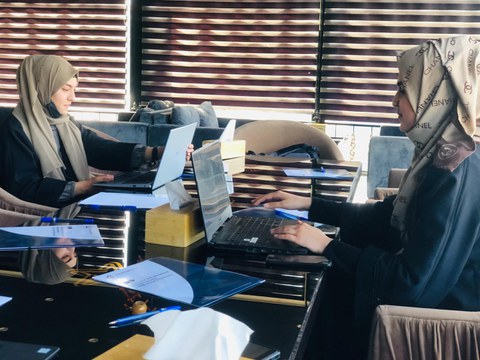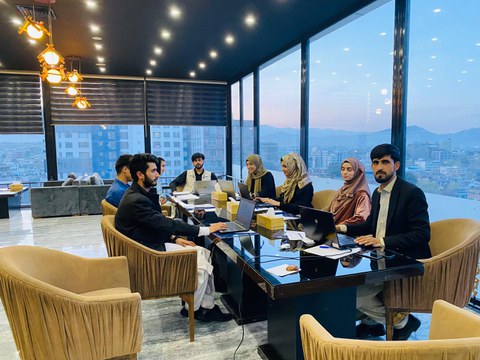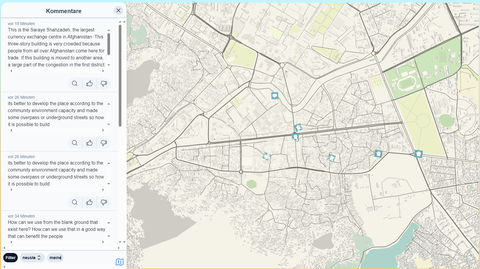Apr 12, 2024
Visions for the old city of Kabul: Afghan men and women planned their city in a U_CODE workshop
The Urban Co-Design Operational Unit and Services (OPUS) of WISSENSARCHITEKTUR - Laboratory of Knowledge Architecture is taking the co-design tool U_CODE all over the world. One project has now taken them to Afghanistan.
"Planning culture and participation in the revitalization of Kabul" was intended to give people living in the Afghan capital (especially women) the opportunity to express their wishes and visions for the city.
The local partner was the Hamburg-based NGO StayIN, which is committed to equal opportunities in education. The aim of this project is to establish a dual training system for industry in Afghanistan and thus provide the skilled workforce required for sustainable economic growth. StayIN also aims to help Afghan women develop entrepreneurial skills.
The women involved in the workshop were very touched by the opportunity to actively contribute and express their ideas. Many participants, especially the urban planners, were very interested in the co-design software.
UCODE (Urban Co-Design Environment) is an easy-to-understand 3D participation application for urban and transportation planning. This application helps to identify meaningful needs for new plans, to communicate existing planning ideas in an understandable way and to obtain opinions on them.
Sanam Ahmadi (StayIN): "The old city of Kabul holds historical significance, and many engineers have worked and researched in this area. However, the results have not always been successful or beneficial. One of the most interesting aspects of this project is the involvement of the local people.
This approach is inspiring because it ensures that the result is based on the suggestions of the people, which may lead to positive outcomes. In Afghanistan, many projects fail or face disagreement because people's opinions are not considered. In U-CODE, this issue is addressed."
Narges Sharaf (HafenCity Hamburg): "The workshop was a success and contributed significantly to the progress of my bachelor thesis. The participants were engaged and helpful, which led to positive and insightful results. Through the discussions and comments, we were able to gain important insights into the current problems related to the technical and social infrastructure, especially regarding the necessary adjustments to the roads. The participants expressed their concerns clearly and the use of the digital tool proved to be straightforward and easy to understand for all."



